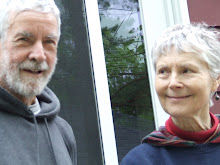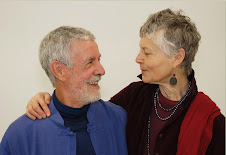Dear Family and Friends,
I recently joined a Facebook Page “community” entitled
“WOW,” (“Women’s Older Wisdom”). It was created by Pat Taub, a family
therapist, writer, activist, and life-long feminist. Look here to read her
interesting “Introduction to WOW: http://wowblog.me/about/
At some point, Pat asked me if I would be willing to write
two guest blogs about my experience as a widow. “The widow’s voice is
missing,” she explained. So I agreed to to fill this void, and thereby open up
a topic which is clearly relevant for us older women.
Here, then, are my two guest blogs, A Widow’s Journey
Parts I and II, which Pat posted on her blog in late February and early March, 2016: http://wowblog.me/category/life-as-a-widow/
But – I want to tack on an open-ended addition. Beyond the constraints of a word limit for the those two essays, I have need to say more. So here it is:
POSTSCRIPT ON A WIDOW’S JOURNEY
I recently
came upon a 73 page pdf I found so helpful, I added it to the annotated list of
books on grief and death that helped me after Francis died. It’s on my website
under Elaine’s blog: “Mourning and the Transformation of Object Relationships,
Evidence for the Persistence of Internal Attachments” by John E. Baker, PhD of
Harvard Medical School and Cambridge Hospital http://www.griefcounselor.org/articles/prof-article-mourning-and-transformation-baker.pdf
After Francis’ death, I found the most help from Greg
Mogenson’s book, Greeting the Angels An Imaginal View of the Mourning
Process - because it closely mirrored my experience. That book
was published in 1992.
I can now
say, however, that this recently published article goes even further in
supporting my ongoing widow’s journey.
In reviewing recent clinical and empirical literature on
the subject of mourning, its author declares: “Mourning is seen as a process of
inner transformation that . . . involves not the breaking of an object tie, but
the transformation of that attachment into a sustaining internal presence .”
When I read the following, I immediately identified it as my
experience. This what I do! –
“Widows or widowers who review
the events of the day in their imagination with the person who died are using
the internal relationship not just to decrease their feelings of loneliness,
but also to sort out their own thoughts and to define their own wishes, needs,
and feelings. They are using the internal relationship to define and maintain
their sense of self-identity. . .
Since these few other passages go even further in
illuminating my way, I’m going to quote them here below, without further
explanation.
I hope that my writing and sharing of resources that help
me, is of help to you, or to others you know.
Loving gratitude,
Elaine
“In healthy mourning, some of the functions of the
internal object are gradually taken over by new relationships with new objects
in the external world. Yet there are aspects of the internal relationship with
the deceased that remain unique. The self is never again the same as it was in
that relationship, and the object too is found to be unique in ways that cannot
be fully replaced. It is this core of individuality, of uniqueness of the self
and object representations, that characterizes a continuing, healthy
"introject" in the personality of the bereaved individual. . . .
Although we know that after such a loss the acute state
of mourning will subside, we also know that we shall remain inconsolable and
will never find a substitute [for the person who died]. No matter what may fill
the gap, even if it be filled completely, it nevertheless remains something
else. (E. L. Freud, 1960, p. 386) A continuing internal relationship can
coexist with the development of new object relationships, which in turn enrich
the inner world in their own unique ways. It is this coexistence of inner
attachments in the mourning individual, even long after the death of the love
object, that needs to be recognized and better understood. . . .


















No comments:
Post a Comment